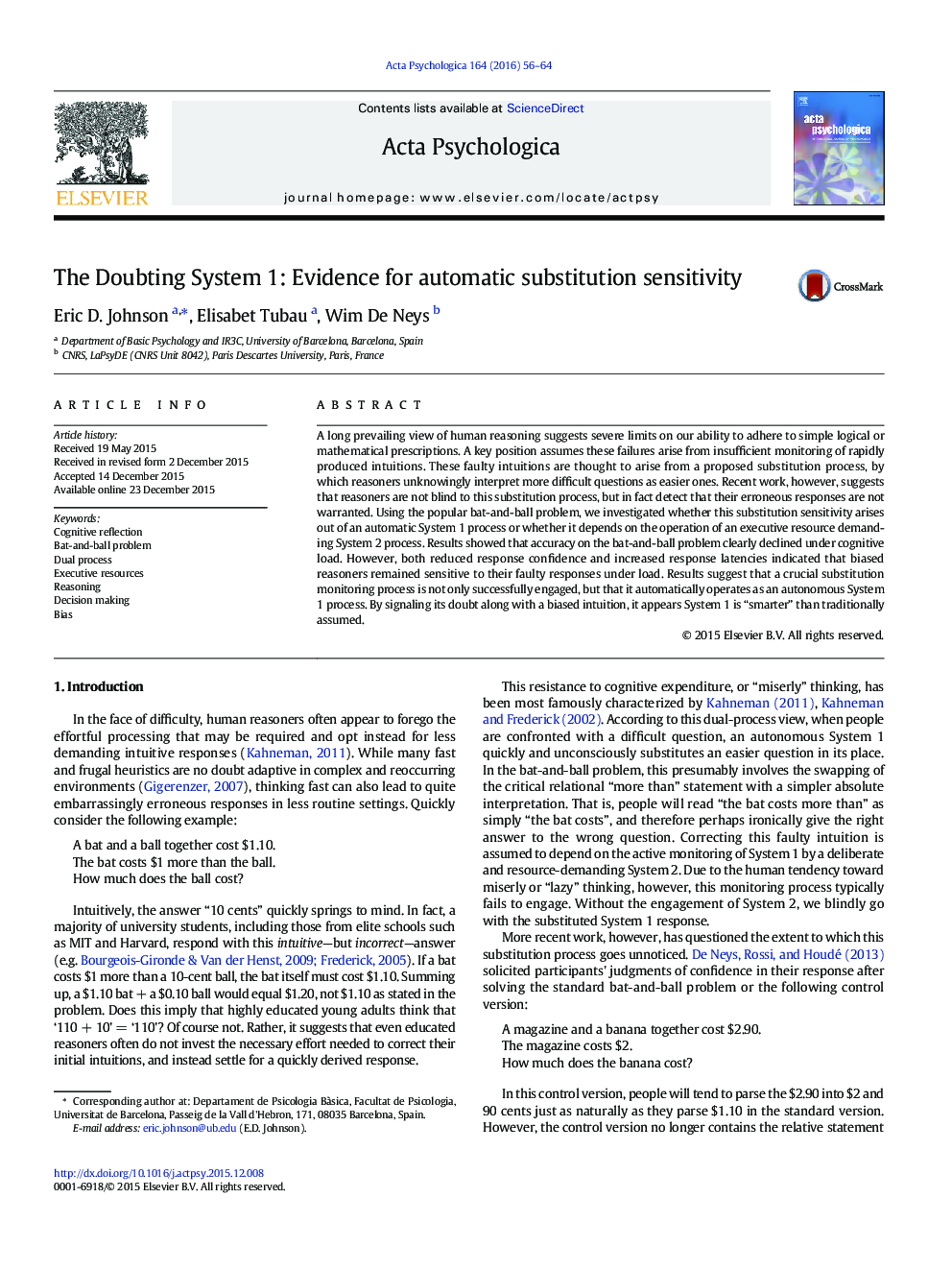| Article ID | Journal | Published Year | Pages | File Type |
|---|---|---|---|---|
| 919657 | Acta Psychologica | 2016 | 9 Pages |
•We contrast two origins of substitution sensitivity in the bat-and-ball problem.•Three measures indicated biased reasoners sensitive to erroneous substitutions.•Substitution sensitivity found even under demanding cognitive load.•A System 1 process automatically detects erroneous substitutions.
A long prevailing view of human reasoning suggests severe limits on our ability to adhere to simple logical or mathematical prescriptions. A key position assumes these failures arise from insufficient monitoring of rapidly produced intuitions. These faulty intuitions are thought to arise from a proposed substitution process, by which reasoners unknowingly interpret more difficult questions as easier ones. Recent work, however, suggests that reasoners are not blind to this substitution process, but in fact detect that their erroneous responses are not warranted. Using the popular bat-and-ball problem, we investigated whether this substitution sensitivity arises out of an automatic System 1 process or whether it depends on the operation of an executive resource demanding System 2 process. Results showed that accuracy on the bat-and-ball problem clearly declined under cognitive load. However, both reduced response confidence and increased response latencies indicated that biased reasoners remained sensitive to their faulty responses under load. Results suggest that a crucial substitution monitoring process is not only successfully engaged, but that it automatically operates as an autonomous System 1 process. By signaling its doubt along with a biased intuition, it appears System 1 is “smarter” than traditionally assumed.
